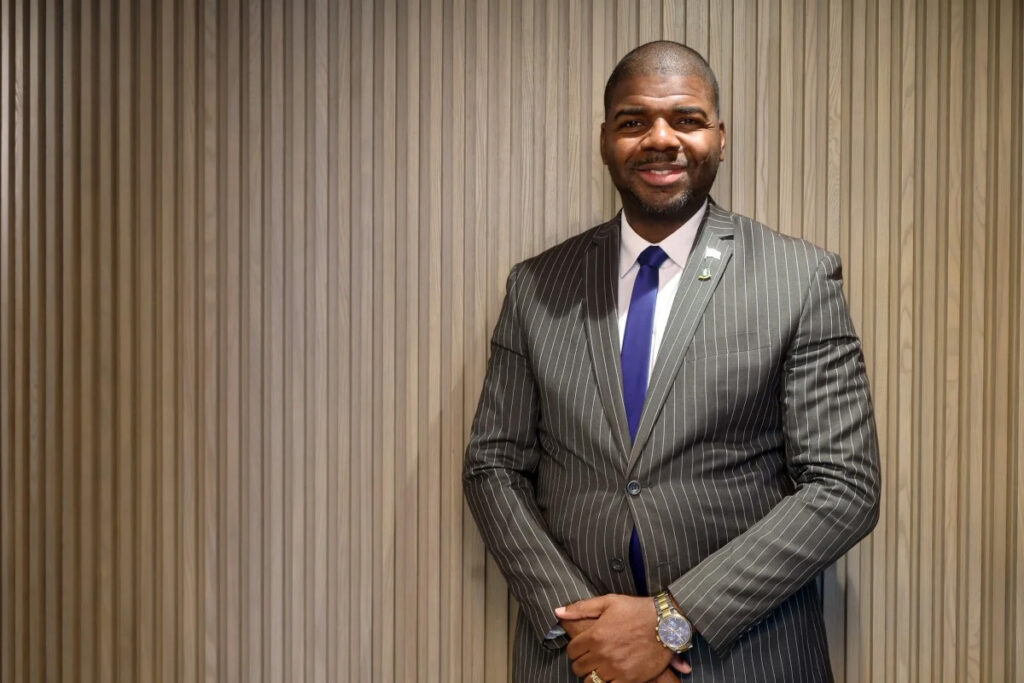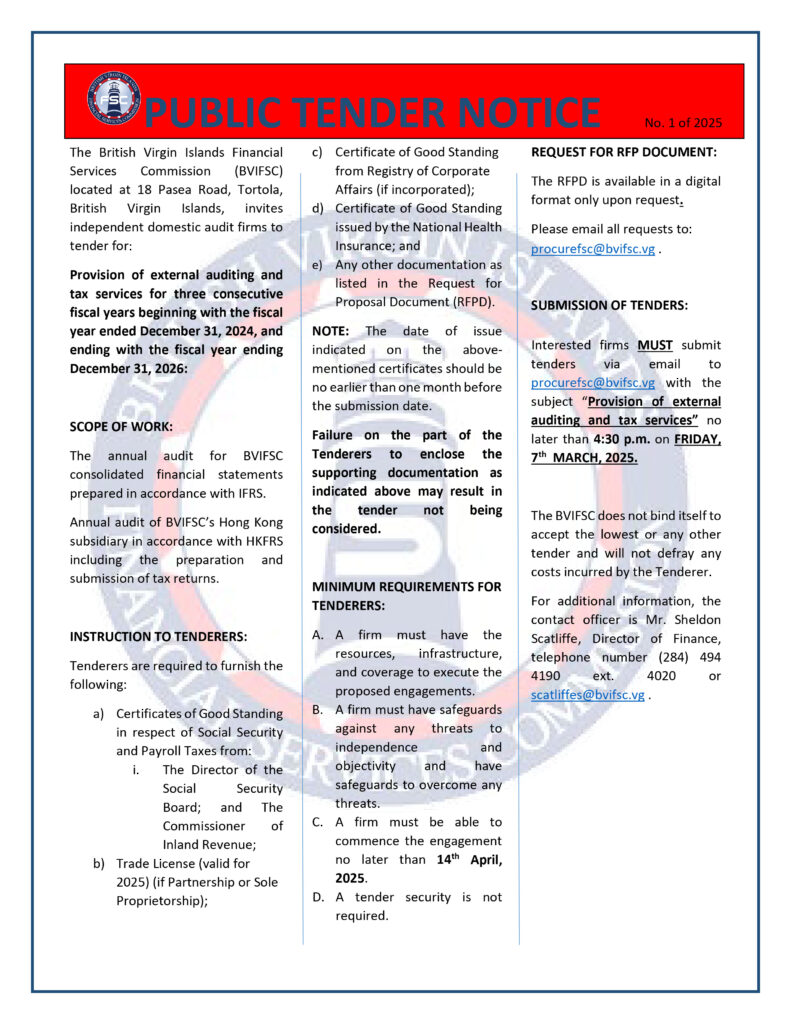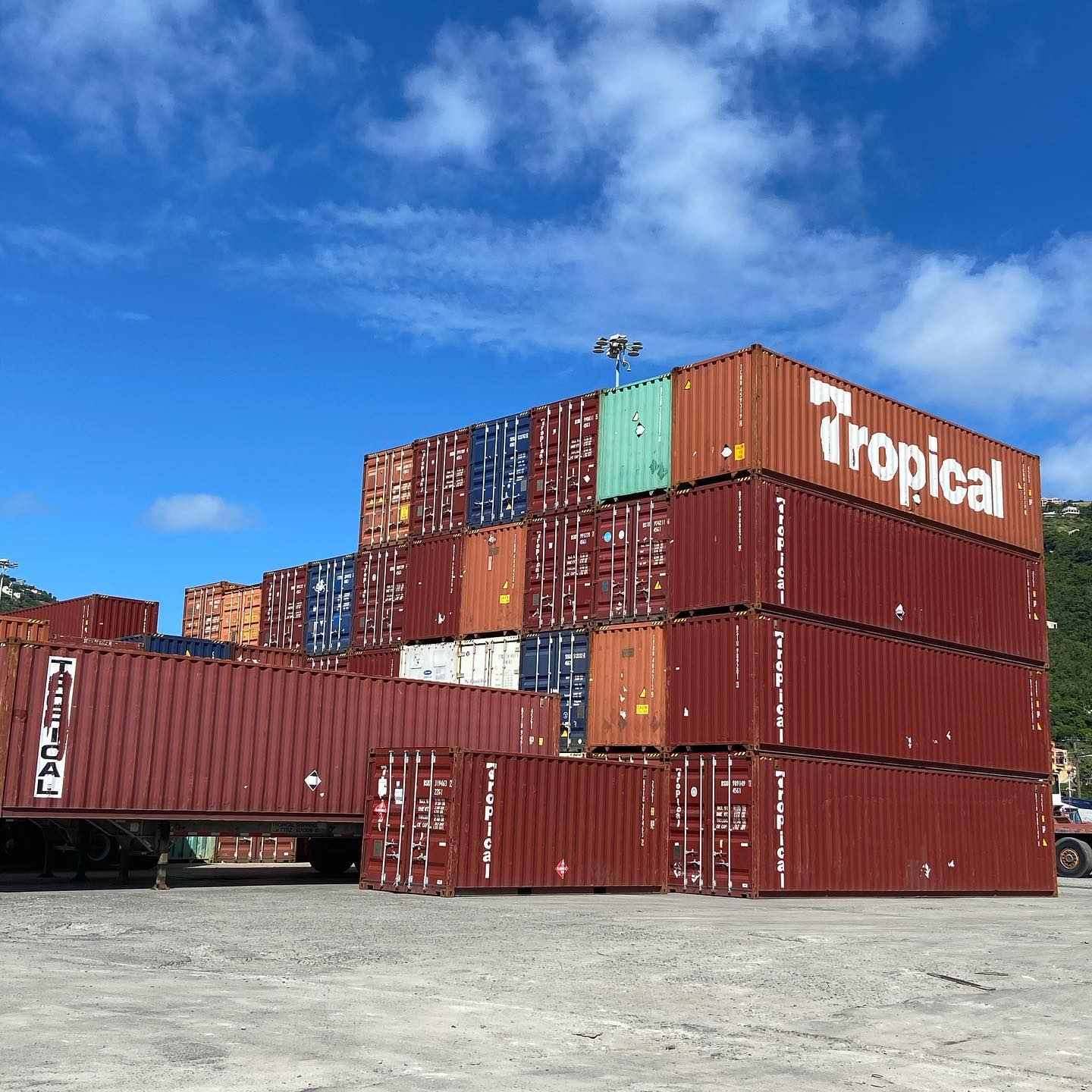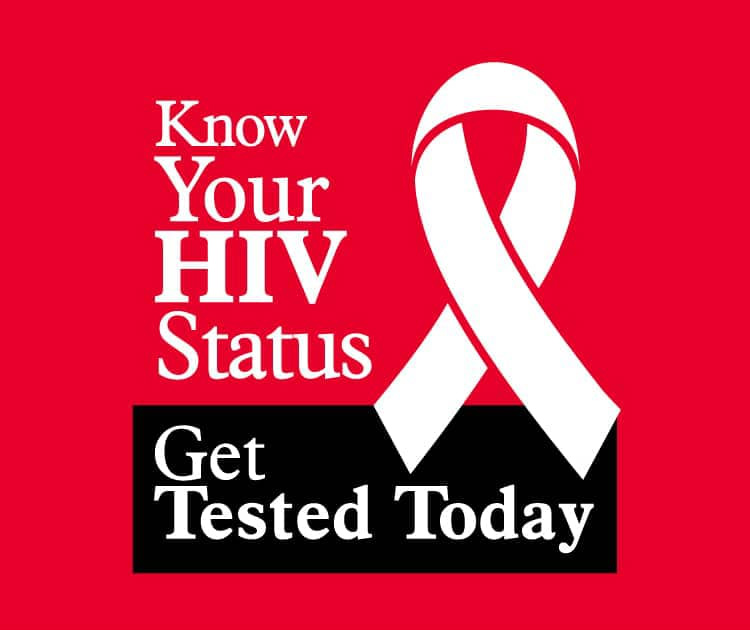International
British Virgin Islands Weighs Tax Reforms Amid Global Compliance Push

Photo: www.scmp.com
The British Virgin Islands (BVI), a long-standing jurisdiction for company incorporations, particularly among firms from Hong Kong and mainland China, is considering the feasibility of implementing a global minimum tax rate. The government has enlisted consulting firm KPMG to assess the impact of such a move, with findings expected next month, Premier and Finance Minister Natalio Wheatley confirmed.
The global minimum tax, set at 15 per cent, applies to multinational corporations generating at least €750 million (US$788 million) in annual revenue over two of the previous four years. Under international tax agreements, jurisdictions failing to impose the requisite tax rate may see other countries applying top-up levies on corporations operating within their borders. More than 130 jurisdictions, including the BVI and Hong Kong, have endorsed the initiative.
“Once we receive KPMG’s analysis, we will be in a position to determine whether adopting the global minimum tax is a viable course of action for the Virgin Islands,” Wheatley said.
The Premier arrived in Hong Kong on 16 February as part of an Asia-Pacific tour aimed at reinforcing the territory’s engagement with key financial markets. His itinerary included stops in Macau and Shenzhen, where he met with business leaders, industry representatives, and BVI students pursuing higher education in the region.
The BVI, a British Overseas Territory, has long been a preferred destination for company registrations due to its tax-neutral status, offering no corporate or capital gains taxes. The territory remains a major player in global finance, with approximately 375,000 active companies incorporated within its jurisdiction. Nearly 44 per cent of these are linked to Hong Kong, Macau, and mainland China, according to official figures.
The UK-based advocacy group Tax Justice Network ranked the BVI as the world’s leading tax haven as of October 2024. The group reported that nearly 2.9 per cent of multinational corporate financial activity in 2024 either originated from or flowed through the BVI.
Despite growing international scrutiny and competition, particularly from Hong Kong, Wheatley expressed confidence in the BVI’s enduring appeal to global investors. Hong Kong recently introduced regulatory reforms aimed at simplifying the redomiciliation of overseas companies, positioning itself as an alternative jurisdiction for incorporation. However, Wheatley emphasised the BVI’s well-established legal framework, experienced financial services sector, and streamlined incorporation processes.
“In the British Virgin Islands, a company can be registered within 24 hours while maintaining full compliance with international regulatory standards,” he said. “There is no need to shift from a jurisdiction that continues to meet business needs effectively.”
Meanwhile, the UK government has recommended expanding access to beneficial ownership information in the BVI beyond law enforcement agencies to parties with “legitimate purposes.” The BVI government is conducting consultations to define what constitutes a legitimate purpose, with a decision expected by June.
“We value our longstanding relationships with stakeholders in mainland China, Hong Kong, and Macau and will continue fostering an environment that supports business growth while adhering to international obligations,” Wheatley said.
The territory remains focused on balancing its economic interests with evolving global financial standards.
ADVERTISEMENT:

International
Cardinal Robert Prevost of Chicago Elected as Pope Leo XIV

– First American Pontiff in Catholic Church History
The College of Cardinals has elected Cardinal Robert Francis Prevost of Chicago as the 267th pope of the Roman Catholic Church. He will be known as Pope Leo XIV, marking the first time an American has ascended to the papacy in the Church’s two-millennia history.
The announcement came at 6:07 p.m. local time, when white smoke billowed from the chimney of the Sistine Chapel, signaling the successful conclusion of the conclave’s fourth ballot. Shortly thereafter, Cardinal Protodeacon Dominique Mamberti proclaimed the traditional “Habemus Papam” from the balcony of St. Peter’s Basilica.
Appearing before a jubilant crowd in St. Peter’s Square, Pope Leo XIV offered his first apostolic blessing and addressed the faithful with a message of peace: “Peace be with all of you! I want this salute of peace to enter your heart, reach your families, and all people, and all the peoples, and the whole world.”
Born in Chicago in 1955, Robert Prevost is a member of the Order of St. Augustine. He spent decades serving as a missionary in Peru, where he taught theology and held various administrative roles within the Church. In 2023, he was appointed to lead the Vatican’s Congregation for Bishops, a position that placed him at the heart of the Church’s global leadership.
Pope Leo XIV’s election is seen as a unifying choice amid ideological divisions within the Church. His background reflects a commitment to inclusivity and dialogue, values that align with the synodal approach emphasized by his predecessor, Pope Francis. In his initial remarks, Pope Leo XIV expressed a desire for a Church that is “engaged with the modern world and always looking for peace, charity and being close to people, especially those who are suffering.”
The new pontiff faces a range of pressing challenges, including fostering unity within a polarized Church, addressing global conflicts, and continuing efforts to reform Church governance and address past abuses. His leadership will be closely watched as he navigates these complex issues.
Pope Leo XIV’s election has been met with congratulations from leaders around the world. U.S. President Donald Trump lauded the historic moment, stating, “It is such an honor to realize that he is the first American Pope. What excitement, and what a Great Honor for our … .”
As the Catholic Church enters this new chapter under Pope Leo XIV’s guidance, the faithful and observers alike look forward to the direction he will set for the global community of believers.
Business
Caribbean Shipping Secures Exemption from U.S. Port Fees on Chinese-Built Vessels

The Office of the United States Trade Representative (USTR) has exempted Caribbean shipping routes from newly proposed port fees on Chinese-built vessels. This decision follows concerted advocacy by the Caribbean Private Sector Organisation (CPSO) and regional stakeholders, who warned that the fees could have devastating economic consequences for the Caribbean.
The USTR’s initial proposal aimed to impose fees of up to $1.5 million per port call on vessels constructed in China, as part of a broader strategy to counter China’s dominance in global shipbuilding and bolster the U.S. maritime industry. However, the policy faced immediate backlash from Caribbean nations, where a significant portion of shipping relies on Chinese-built vessels.
Dr. Patrick Antoine, CEO and Technical Director of the CPSO, testified at a USTR public hearing, emphasizing that over 90% of CARICOM’s trade in goods depends on maritime transport. He warned that the proposed fees could lead to a 60% increase in shipping costs to and from the Caribbean, severely impacting economies where more than 50% of the ships are Chinese-built.
The potential repercussions were particularly alarming for smaller Caribbean states like Antigua and Barbuda, Dominica, Grenada, St. Lucia, and St. Vincent and the Grenadines, which rely heavily on short-sea shipping routes serviced by Chinese-built vessels. Prime Minister Gaston Browne of Antigua and Barbuda expressed concern that shipping a container could increase by $3,000 to $4,000, leading to an 8–10% rise in consumer prices and pushing inflation rates to potentially 12–14%.
In response to these concerns, the USTR revised its policy to exempt ships operating between U.S. domestic routes, the Caribbean, U.S. territories, and Great Lakes ports from the new fees. This adjustment aims to prevent inflation, supply chain disruptions, and surging trade costs in the region.
The exemption has been met with relief across the Caribbean. Dr. Antoine expressed gratitude to the USTR for recognizing the unique challenges faced by Caribbean economies and for taking steps to safeguard regional trade stability.
While the exemption provides immediate relief, regional leaders and industry stakeholders continue to monitor the situation closely. They advocate for long-term strategies to enhance the resilience of Caribbean supply chains and reduce dependency on external factors that could disrupt trade.
Business
BVI Braces for Ripple Effects as U.S. Stock Market Sheds $5 Trillion

In just three weeks, the U.S. stock market has lost a staggering $5 trillion in value, a downturn that could have significant implications for the British Virgin Islands (BVI), where the U.S. dollar is the official currency. As economic uncertainty grips the global financial system, concerns are mounting over how this sharp decline might impact the BVI’s economy, particularly in the areas of tourism, offshore financial services, and overall consumer confidence.
With the U.S. being the primary source of visitors to the BVI, any financial squeeze on American households could lead to a reduction in travel plans. A weaker U.S. stock market often means tighter budgets for vacationers, which could result in lower visitor numbers, reduced hotel bookings, and fewer yacht charters—critical sectors for the territory’s economy.
As one of the Caribbean’s leading offshore financial hubs, the BVI is deeply connected to global markets. A drop in stock values can shake investor confidence, potentially leading to slower financial transactions, reduced incorporations, and a cautious approach from high-net-worth individuals who use BVI-based structures for wealth management.
With the BVI using the U.S. dollar, economic shocks in the U.S. can quickly affect the cost of goods and services in the territory. A weaker U.S. market could lead to fluctuations in inflation, making imports more expensive. For a territory that relies heavily on imported goods—from food supplies to construction materials—this could put additional pressure on businesses and consumers.
The BVI government will likely keep a close watch on these developments, as a prolonged U.S. market downturn could impact tax revenues, business activity, and overall economic confidence. Policymakers may need to explore ways to strengthen economic resilience, whether through increased regional trade, diversification efforts, or measures to support local businesses in uncertain times.
While the full impact of this financial slide remains to be seen, one thing is certain: the BVI, like many other U.S. dollar-dependent economies, is paying close attention to Wall Street’s turbulence and preparing for potential economic headwinds.
-

 Crime/Police2 weeks ago
Crime/Police2 weeks agoManhunt Underway for ‘Small Brent’ in Nyron Erickson Murder Case
-

 Local News2 weeks ago
Local News2 weeks agoControversial 3-Point Call Proven a 4, But Result Stands: Team USVI Withdraws from Third-Place Match
-

 Uncategorized2 weeks ago
Uncategorized2 weeks agoFestival Costs Outpace Revenue Despite $1M Intake, Says Premier
-

 Entertainment1 week ago
Entertainment1 week agoFive Students to Compete in Mr. & Miss HLSCC Pageant on June 1
-

 Uncategorized4 days ago
Uncategorized4 days agoChantel Malone Leaps to First Place Amid Headwinds at Tucson Elite Classic:
-

 Local News2 weeks ago
Local News2 weeks agoKing’s Baton Officially Handed Over to Premier in Ceremony Ahead of 2026 Games
-

 Crime/Police2 weeks ago
Crime/Police2 weeks agoDeputy Commissioner Confirms 17 Gun Robberies, Two Fatalities in 2025
-

 Entertainment2 weeks ago
Entertainment2 weeks agoPremier Wheatley: Festival Committee Board to Be Finalised Within Days

























